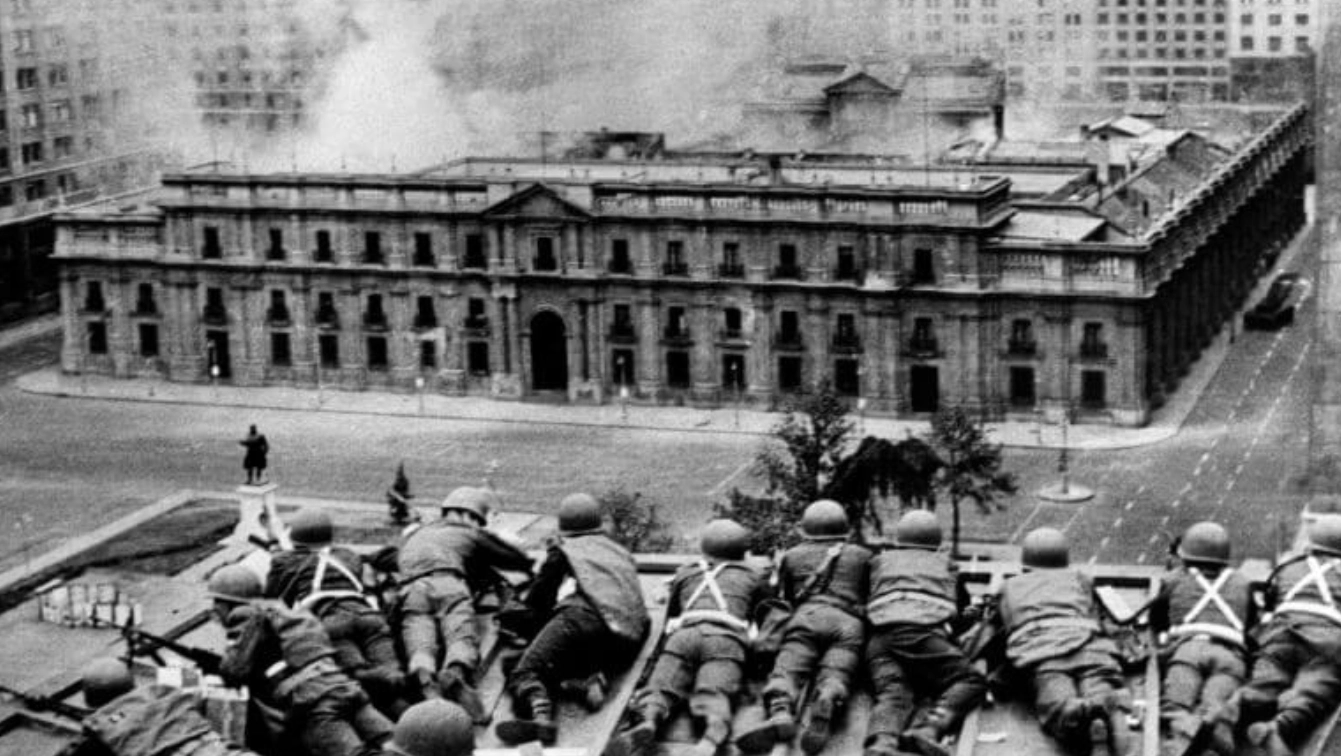There are dates that mark an era and imbue the generations that live them with symbolism. As if they were a stamp, they specify the precise moment and shape a legacy that defines a good part of the future. Some have the capacity to transcend the physical environment where the event that gave them meaning occurs that they constitute a reference on a larger scale. September 11, 1973, is one of them. Not only did it mark the violent end of a political process in a specific country, Chile, which had to bear its dramatic imprint for decades to come, but it also had a notable impact on international society.
The coup d’état that ended the one thousand days of Salvador Allende’s government configured an unhealthy symphony of meanings in Chile. It meant the bankruptcy of its institutionality, breaking the model that until then had been exceptional in the region, together with Uruguay; it buried the dreams of generations that mixed the illusion of democratic change with that of bloodless revolution and that made the slogan “socialism in freedom” the banner of their existence; it failed to value the destabilizing potential that certain economic sectors had (truck drivers); it showed its clumsiness in not understanding that Chilean society was divided in such a way that the political proposal for transformation was supported by a social contingent that was not in the majority and that all this translated into a fragmented party system where the formation of majorities was very complicated; and it made it possible for the “invisible hand” of the United States to be present encouraging the military to act in their role as saviors of the homeland and of Western values whose reputation as guarantors of the constitution for half a century would be ruined.
In short, September 11 also left the image of a president who, by putting an end to his life in the Mint, subjected to a relentless bombardment, set the bar very high in that complex Weberian combination of the ethics of responsibility and conviction. The failure of the Chilean left to bring about political, economic, and social change, as recent works by Daniel Mansuy (Salvador Allende. La izquierda chilena y la Unidad Popular), by Gonzalo Vial (El fracaso de una ilusión) and before, among others, of Tomás Moulian and Manuel Antonio Garretón, as well as of Juan Gabriel Valdés, Allende’s answer made confluence the spilling of his blood with that of all those assassinated on the ill-fated day and those that followed him outlining the representative of Víctor Jara, 41 years, assassinated after having been tortured. A disaster that, unlike what happened in Spain after the coup d’état of July 1936, has had some reparation despite the time elapsed, as evidenced by the recent unanimous conviction by the Supreme Court of those who perpetrated the murder of the singer-songwriter.
But Chile’s September 11 also had an international impact. The interruption of the Chilean process was the correlate, five years later, of the Soviet tank invasion of Prague, which had halted the ideals of political change encouraged by Alexander Dubcek’s government. The conditions of the Cold War were thus reinforced. Ironically, in Latin America, they gave air to the deepening of the totalitarian features of the Cuban revolution while stimulating the agitation in the barracks to promote the doctrine of national security that inspired it at the time.
Even in Italy, the proposal of the historical compromise by which the PCI and the Christian Democracy were trying to reach a certain rapprochement was put on the back burner. In Spain, Franco closed ranks, but the opposition understood the need for a joint action that would culminate in the coincidence of the Democratic Platform and the Democratic Junta. Above all that climate, the figure of the then U.S. Secretary of State Henry Kissinger, who, half a century later, celebrating his centenary, continues to receive attention as the oracle of history.
Chile had one of the longest dictatorships in the region and, in addition to persecuting the left, was the first country to introduce neoliberal policies. Both elements had relevant consequences in the following lustrums. Although the dictatorship was dismantled thanks to the popular vote after a plebiscite held in 1988, the electoral law that was designed forced an alliance of parties and movements that had taken a very critical stance against the Pinochet regime.
The Concertación, made up of Christian Democrats, Radicals, and Socialists in different factions, was thus the political response that governed the country for twenty years, conditioned by authoritarian enclaves, as Manuel Antonio Garretón put it, which were gradually eliminated. However, the constitution that governed the destiny of the country was still the one elaborated in the times of Pinochet (1980).
The alternation, thanks to the electoral triumph of the right-wing led by Sebastián Piñera in 2010 and 2018, confirmed that democratic settlement was feasible in the new state of affairs. However, the social conflict was far from being channeled. Different social mobilizations translated the discontent of a model that did not satisfy the new generations and highlighted the failure of some of the most emblematic policies of the neoliberal order. The pension system, healthcare, and education were examples of bad government and bad management that poisoned the social climate. At that time, the past stood as a terrain in which to ask questions searching for explanations for daily events. In this scenario, fifty years after September 11, 1973, the answers can find their basis.
*Another version of this text was published in El Ciervo, n. 800, July-August 2023, Barcelona, Spain.
*Translated by Janaína Ruviaro da Silva from the original in Spanish.











